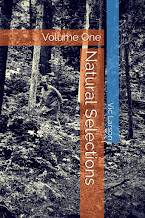Poor or developing nations are spoken of as “Third World.” We are fortunate to live in a wealthy First World country. Our challenges are typically not due to lack of sanitation, potable water, electricity or all of the various other infrastructure elements we take for granted, despite our government’s struggle to fund the much-needed maintenance of these critical items.
We can joke that a delay in our mail, a flat tire, a problem connecting to WiFi, rising gas prices, a backorder on Amazon or an assortment of other inconveniences are “First World problems.” “Oh my gosh, Whole Foods is out of organic cranberries!” But have you ever experienced a power failure that lasted more than a few hours or days? How about a lengthy city-wide boil order for your tap water?” Perhaps a nationwide toilet paper shortage was enlightening. Suddenly your perspective changes, albeit temporarily. Some of us go camping to get back to basics. But have you ever traveled to a Third World destination where this is the norm?
We have gone to one such place. A trip to see our son while he was in the Peace Corps, stationed in Guatemala, was an eye opener. He lived for three years in villages where undrinkable water came in periodic “falls” – the opening of a village-wide pipeline on a few specific days during the week or month. From that the villagers filled concrete reservoirs in their homes. These were called “pilas” – dual compartment basins used for washing clothes, dishes, hands, and bucket by bucket, for manually flushing a toilet.
There was no cable TV, no sewers, no waste disposal or telephone lines. Interestingly, cell phone technology allowed for an infrastructure leapfrog in the traditional evolution of telecommunications. Everyone carried cell phones. It was much easier to install a few cell phone towers in remote locations than it would have been to string miles of wires along thousands of installed telephone poles.
We stayed with our son in his single room, a spartan cinderblock, windowless cube in a building that was similarly unglamorous. We toured the town, walking on mostly unpaved roads, meeting his friends, host families and coworkers. And on market day, he took us shopping at the local Costco, an open-air farmers market where he purchased a few onions, potatoes and rice, whatever he needed for the week.
Guatemalan people are generally quite small. They are mostly “Ladinos,” of mixed European (Spanish) and Amerindian descent. The men average about five foot four inches in height. The women are around four foot ten. Our family, at five foot nine to six foot one, was noticeably gigantic. As we strolled through the little marketplace, we routinely ducked under blue tarp tents that shaded the produce sellers.
Those who knew our son were aware of our visit. Others quickly noticed the obvious American outsiders and watched us pass by. It was as we passed by one tiny woman, dark brown and wrinkled from age and a difficult life, missing several teeth, but smiling broadly, that I became an object of fascination unlike at any other time in my life. Looking up into my eyes, with her radiant smile and quiet demeanor, she gently reached out and touched my arm. Was it to see if I was real? For good luck? As a gesture of kindness or honor? I’ll never know. Perhaps she spoke of her encounter to family at dinner that evening. I simply returned her smile and continued on through the market. Our culture and languages separated us, but we shared a moment. And then I went back to the comfort I take for granted in the United States and she continued to sell vegetables for the rest of her life.
Since then, whenever I go to the grocery store, or any store, not just Costco or Sam’s Club, I am struck by our bounty of choices, the immense quantity of food and other goods from which we can choose. Our trip to the Third World changed me forever. I frequently comment on how lucky we are and how little we struggle. Perhaps that’s our real First World problem.
😎
If you like fiction and you're in the mood for over 50 short stories, please consider buying "Natural Selections," at Amazon.com.
Or if you'd prefer seventy non-fiction stories inspired by a town in Illinois, please consider buying Park Ridge Memories also on Amazon. Click on the image below.



